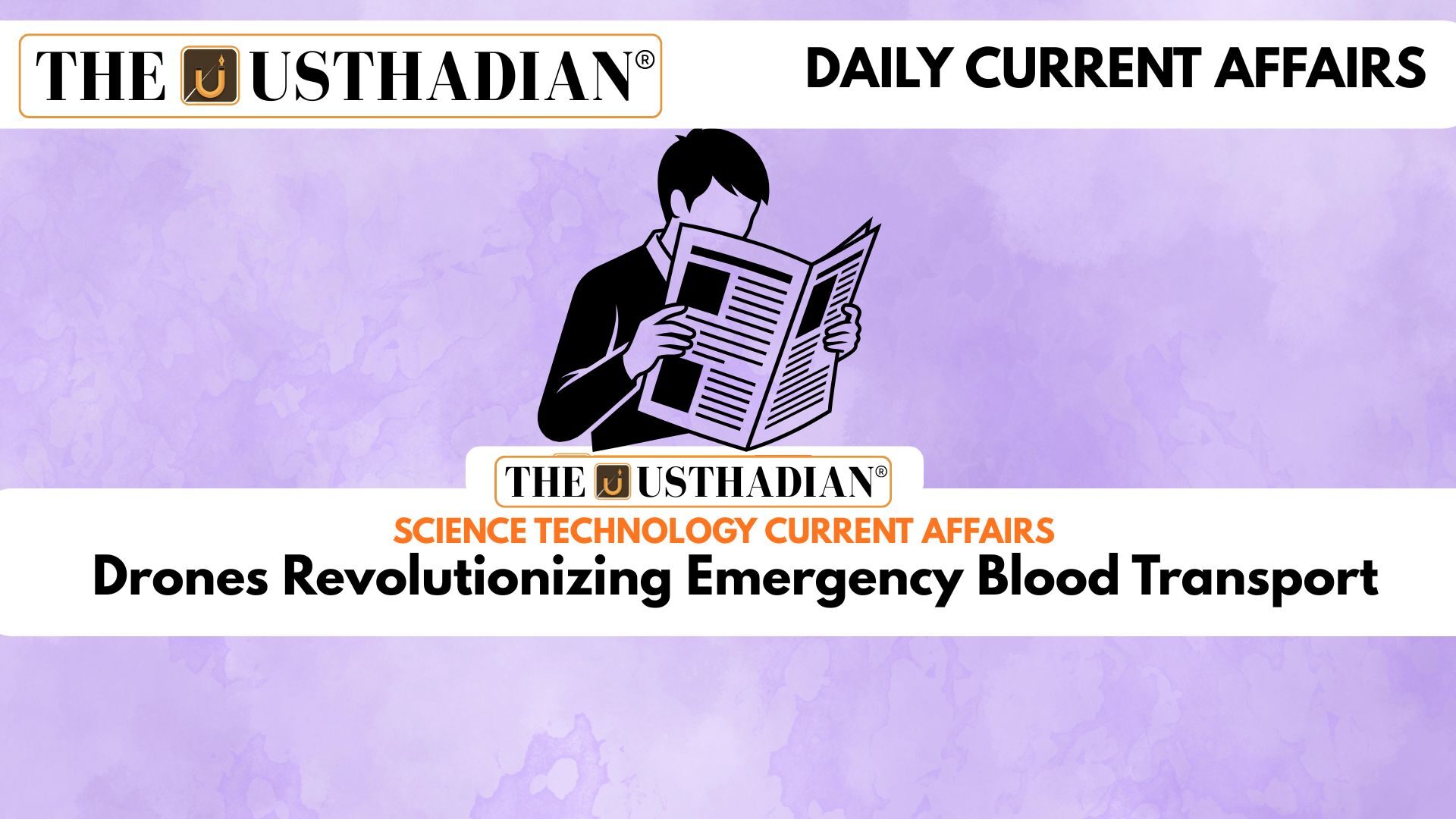Drones reduce delivery time in critical healthcare
Drones Revolutionizing Emergency Blood Transport: The Indian Council of Medical Research (ICMR) has conducted a significant study showcasing the benefits of drones for transporting blood and its components in India. This technology is poised to bridge crucial healthcare gaps, especially in rural and geographically challenging regions.
Drones have the capacity to reduce delivery time substantially during medical emergencies, enhancing patient survival rates.
Why drone delivery matters in emergencies?
Traditional vehicles often face delays due to poor roads, traffic, or inaccessible terrain. Drones can bypass these obstacles, making them ideal for delivering blood bags, especially during golden hour emergencies.
Static GK Tip: The “golden hour” refers to the first hour after traumatic injury, during which medical intervention is most likely to save lives.
Critical need for temperature control
Blood is a delicate biological material. It must be maintained within a strict temperature range during transport to retain its oxygen-carrying capacity and avoid haemolysis or bacterial growth.
Drone containers must ensure thermal insulation and maintain refrigeration to avoid spoilage during flight.
ICMR study proves drone efficiency
According to the ICMR, a drone transported blood over 36 km in just 8 minutes, while the same trip by road took 55 minutes. The findings confirm that drones are faster and more reliable in emergencies.
This study highlights how drones can cut delays and improve response time during natural disasters, accidents, or critical surgeries.
Ensuring the cold chain remains intact
The integrity of the cold chain is key to safe blood delivery. From collection to transfusion, any deviation from the required temperature may render the blood unfit for use.
The ICMR study underscores the importance of complying with both national and international guidelines for biomedical logistics.
Static GK Fact: The World Health Organization (WHO) has strict standards for the storage and transport of blood, especially between 2°C and 6°C.
India’s unique environmental challenges
Transporting blood via drones in India isn’t without hurdles. The country’s varied topography and climates can influence the performance of drones and affect the stability of blood biochemicals.
Research must continue to address these environmental variables to ensure universal safety protocols.
Global success stories
International examples from Rwanda and Italy demonstrate how drones have been effectively deployed to deliver blood safely. These global models reinforce the feasibility of replicating such systems across Indian states.
What lies ahead?
The ICMR stresses the need for further studies to assess drone impact on blood quality post-transport. Future research will help in defining standard operating procedures, especially concerning altitude, packaging, and flight duration.
Static Usthadian Current Affairs Table
Drones Revolutionizing Emergency Blood Transport:
| Topic | Detail |
| Study Conducted By | Indian Council of Medical Research (ICMR) |
| Drone Travel Distance | 36 km |
| Drone Travel Time | 8 minutes |
| Road Travel Time | 55 minutes |
| Critical Concern | Cold chain maintenance |
| Ideal Blood Temperature | 2°C to 6°C |
| Key Risk | Haemolysis due to temperature variation |
| Global Models | Rwanda and Italy |
| Static GK Fact | WHO sets global blood transport standards |
| Static GK Tip | “Golden hour” is the first hour after injury for optimal treatment |








